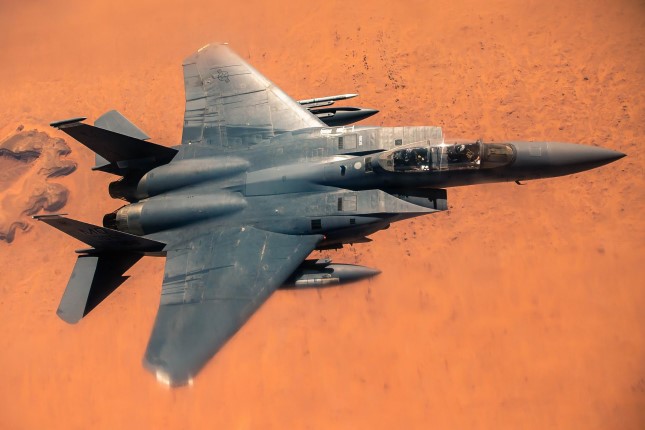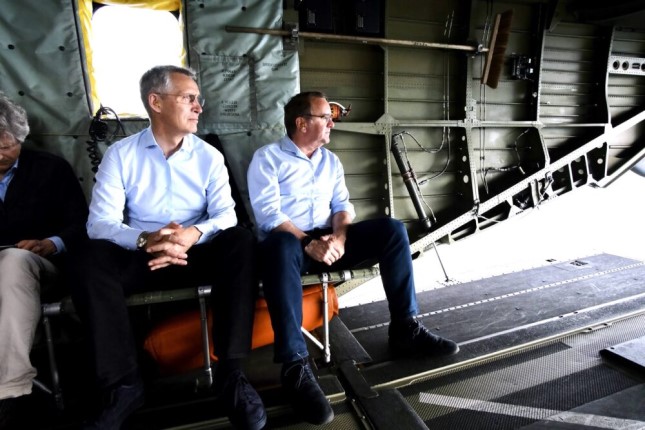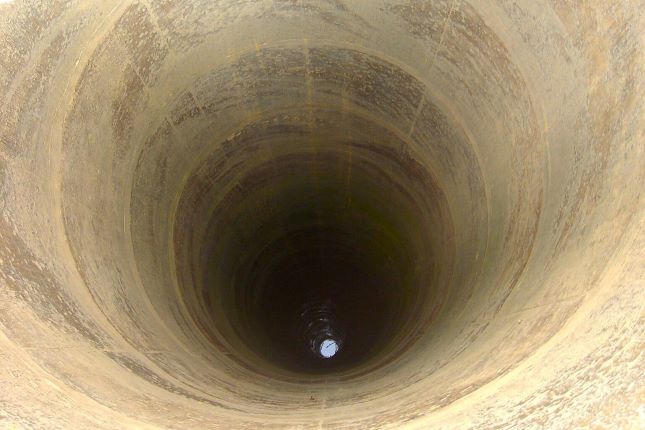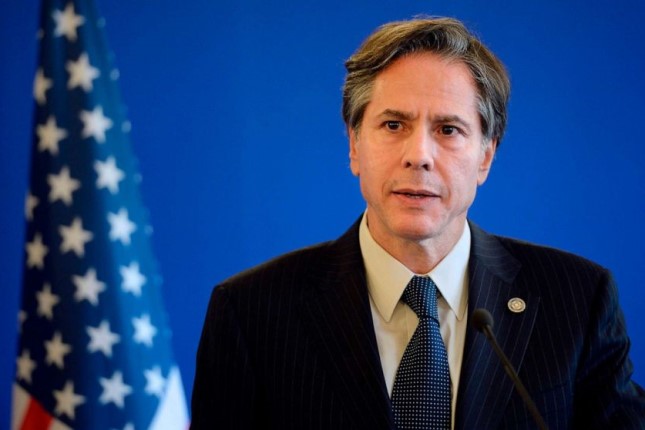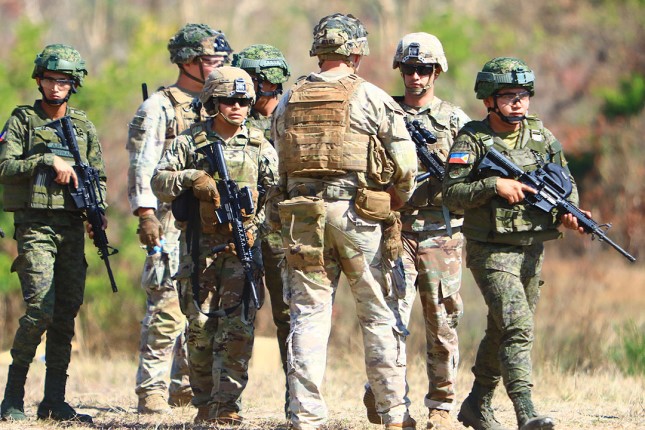In response to Western media's allegations that Iran may be plotting an attack on Saudi Arabia, the United States has redeployed some of its Persian Gulf-based combat aircraft closer to Iran. It all started with a piece published in The Wall Street Journal's November 1 issue claiming that Riyadh had tipped Washington off with intelligence suggesting an imminent threat of an attack by Iran. Following a few days of media hoop-la, the Biden administration finally decided to redeploy some of its warplanes.
The sudden change in Washington's posture is particularly striking. Just a few weeks ago, the US administration was breathing fire and brimstone about the need to curb the United States’ military and technological cooperation with Saudi Arabia.
The US administration was outraged by Saudi Arabia's support of the OPEC+ decision to cut oil production, despite Washington's clearly articulated and insistent demands not to, or, at the very least, to postpone making this decision until the mid-term elections to the US Congress are over. The US was particularly peeved by the Saudis' failure to keep this request under wraps. But, in the end, the US unexpectedly chose to have a change of heart.
What made the US change its mind were three key developments:
- Xi Jinping's getting reelected at the 20th Congress of the Communist Party of China
- The rights winning the Knesset elections in Israel
- Approaching mid-term elections to US Congress
The combined effect of these three factors brought about Washington's recent change of heart. And overall, this does not bode well for Tehran. US policy toward Iran is growing increasingly "Republican" well ahead of the potential change in who is at the helm at the White House. Given that large-scale protests currently sweeping Iran do not appear to be about to abate soon, a US operation against Iran is becoming more plausible than ever.
Pet peeves
The approaching US mid-term elections played a key role in all this. The Democrats might have reasoned that they should not risk going to the elections with the stigma of someone who has lost Saudi Arabia, after all. Saudi Arabia's drift toward China has been getting increasingly visible lately, and Xi Jinping's re-election for his third term has put to rest any hope that this drift could be stopped "from inside China". To avoid losing one of its most valuable allies, the US had to stop playing a colonial power and attempt to entice the Saudis with something they might really be interested in, containing Iran.
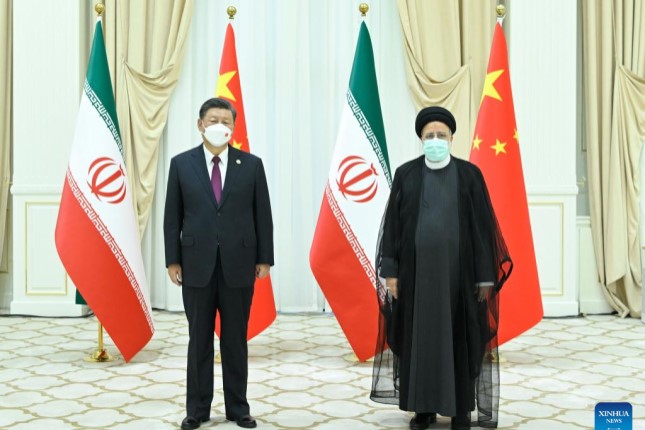
Chinese President Xi Jinping met his Iranian counterpart Ebrahim Raisi in September 2022.
Anti-Iranian rhetoric and policies have traditionally been considered a Republican forte. Regardless of the outcome of the mid-term congressional elections, it can be posited that the right's growing influence will make Washington adjust its foreign policy. The Biden administration appears to have too many skeletons in its closet, making the US policy toward Iran an all the more likely candidate for the role of a bargaining chip.
On top of that, Israel's Likud party has won the nation's snap Knesset elections bringing back to the helm Benjamin Netanyahu who is known for his explicitly anti-Iranian views. The White House will have to adjust its policies in the Middle East in view of the changes in Israel's political landscape playing into the hands of the anti-Iranian elements in Washington.
Two years down the road, we could well bear witness to Donald Trump's triumphant return to the White House. Although Trump has not yet officially made public his intent to run in the 2024 presidential elections, according to The Washington Post, the former US president is already acting as if he were a presidential candidate and has even initiated consultations with his advisors regarding his potential campaign aides.
Trump is known for his affinity for both Israel and Saudi Arabia. One only needs to recall his recent comment about his having done so much for Israel that he "could easily become Israel's prime minister". Or his famous statement, "The world is a very dangerous place!" he made while commenting on the murder of Jamal Khashoggi, a vocal critic of Saudi Arabia's Crown Prince Mohammed bin Salman?! This statement started with the claim that Iran was fighting a proxy war against Saudi Arabia in Yemen, only mentioning Khashoggi for the first time in the fourth paragraph.
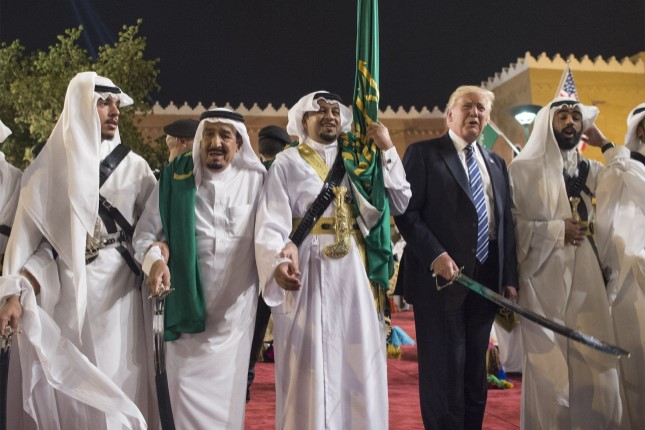
Donald Trump's visit to Saudi Arabia in May 2017.
Even though it may seem quite remote, the prospect of Trump's possible return to the White House will have a power impact on the United States policies in the Middle East.
As a matter of fact, we can see it happening already: just a few days ago, President Biden blurted out that the US will soon "free Iran".
That is a surprising thing to hear from a Democratic US president.
A proto-superpower
In summary, Iran has every chance of ending up in the crosshairs of US foreign policy over the next couple of years. This is getting all the more likely now that the country is being rocked by widespread unrest for the second month. This means that of the United States' top four strategic adversaries (Iran, China, North Korea, and Russia) it is Iran that looks the most vulnerable, which might give someone the impression that the Iran problem could best be dealt with using America's favourite and time-honoured method of influencing its opponent's domestic politics and instigating a regime change.
By and large, however, this could turn out to be a misconception. If Iran's elites succeed in remaining consolidated and can demonstrate their strong political will, Iran should be safe for now. Just consider Syria's example.
At one point, its government was teetering on the brink of just about losing the civil war engulfing the country, and yet it managed to hold out and prevail in the end. So, it is unlikely that Iran could be imploded from within, thus creating a temptation to prod things along by applying force from without.
There several reasons why Iran is turning into such a hot-button issue for the United States. For one, Iran is getting increasingly stronger, and sooner or later, this will push the question of loyalty of the US regional clientele to the forefront. If the US fails to ensure it, they will start looking elsewhere for someone who can assure their security. Secondly, there is always the risk that an Iran-provoked escalation in the Middle East will occur at the most inauspicious moment, effectively turning it into a "second front" in addition to the Far East region.
The two key allies who may need US protection are Saudi Arabia, which must be defended against Iran, and Taiwan (or, ultimately, Japan), against China. The only difference here is that Washington cannot afford to attempt to take preventive measures with regard to China, whereas in the case of Iran, it still can. It could therefore be tempted to try to deal with the Iran problem, albeit partially, first, before it can fully focus on China.
Finally, and thirdly, Iran appears to be one of the very few countries that have the potential to become a true superpower one day. It could be argued that at this juncture, this may look as a very far-off prospect, but from a historical point of view, Iran is perhaps the only country with the potential to turn into a centre of civilizational development down the road.
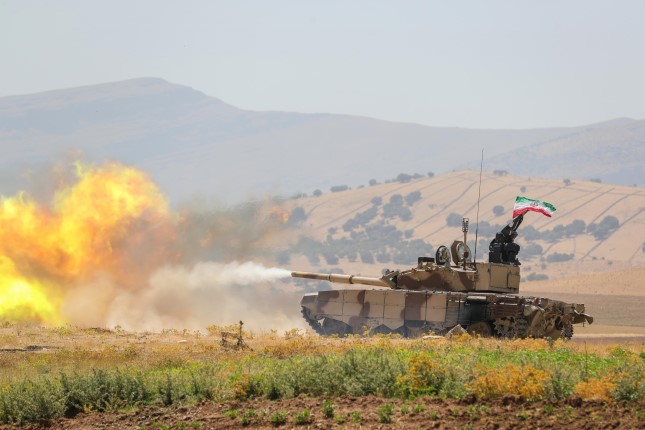
Iranian Armed Forces is one of the most modern and best-equipped armies in the Near and Middle East.
While the United States and the West may position themselves as the successors of the Roman Empire and the empire of Alexander the Great, Iran thinks of itself as the scion of ancient Persia. Iranian President Ebrahim Raisi was compelled to remind Biden: "Our civilization dates back 3,000 years!" Iran believes this, maintains a worldview and mindset of an independent civilization, and has the resources to back up this claim. Perhaps, more importantly, Iran has remained, for over forty years since the 1979 Islamic Revolution, a sovereign decision-making centre, truly independent of the United States. Countries like this are few and far between.
That is why the US will do everything it can to prevent Iran from achieving its full superpower potential. Will the US launch an attack on Iran? When will it happen? Clearly, not anytime soon. The media hype with claims that Iran was allegedly going to strike Saudi Arabia within the next 48 hours, followed by the redeployment of US warplanes to the area in the absence of the strikes, was a campaign ploy.
However, this does not mean that limited strikes or even a larger-scale military operation cannot take place at all. Washington's worst nightmare is the domino effect that could be precipitated by the US failure to defend just one of its allies. If that happens, the US will inevitably lose all of them, one by one.
Saudi Arabia may no longer need the United States' obsessive patronage and the security that comes with it. And this is precisely the reason why it is the United States who would stand to gain the most from a direct military conflict between Iran and Saudi Arabia.
